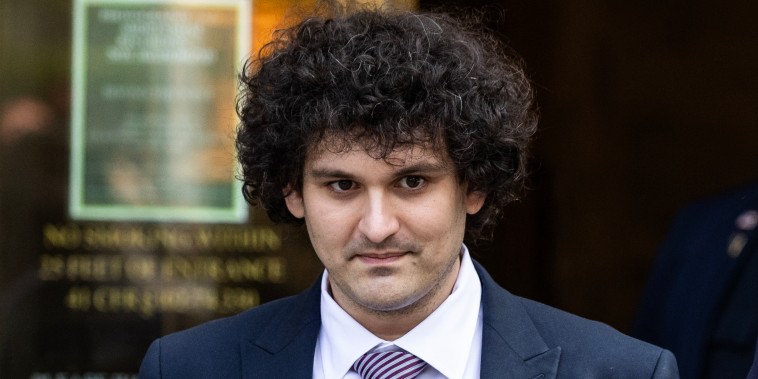Sam Bankman-Fried, once hailed as a genius in cryptocurrency, was found guilty Thursday of all fraud counts against him, a year after his exchange, FTX, imploded and practically wiped out thousands of customers.
The verdict was reached around 7:40 p.m. ET, about four hours after the federal jury in Manhattan began deliberations.
Bankman-Fried, a co-founder of the digital currency exchange FTX, was charged with seven counts of wire fraud, securities fraud and money laundering that swindled customers of FTX and lenders to its affiliated hedge fund, Alameda Research.
Bankman-Fried “perpetrated one of the biggest financial frauds in American history,” Damian Williams, the U.S. attorney for the Southern District of New York, said after the verdict.
“The cryptocurrency industry might be new; the players like Bankman-Fried might be new,” Williams said. “But this kind of fraud, this kind of corruption, is as old as time.”
Bankman-Fried faces up to 110 years in prison. His sentencing is scheduled for March 28.
FTX and Alameda quickly collapsed in November 2022 after some of their financial liabilities were exposed. The fact that Alameda had taken billions of dollars from FTX’s customers and that much of Alameda’s balance sheet comprised digital currency assets it had created, was central to the case against Bankman-Fried.
Unnerved by disclosures about the firm’s financial position, many of FTX’s customers tried to get their money back. That set off the equivalent of a bank run.
The value of Alameda’s investments crashed, and FTX couldn’t return much of that money because it had been given to Alameda. Some went to the fund’s lenders, and billions were spent on sponsorships, commercials and loans to top executives. That, too, was a major part of the case against Bankman-Fried.
Many of FTX and Alameda’s leaders were also charged after the firms went under. Former Alameda CEO Caroline Ellison, FTX co-founder Gary Wang and FTX head of engineering Nishad Singh all pleaded guilty. They agreed to cooperate with the prosecution and testify against Bankman-Fried in exchange for lighter sentences.
While Bankman-Fried testified in his own defense, it didn’t appear to have the same weight as the insider testimony against him. The prosecution, in its closing argument, said Bankman-Fried had answered “I can’t recall” 140 times while he was being cross-examined.
Bankman-Fried’s lawyers contended that he did not intend to defraud anyone and that the government was looking for someone to blame after the failures of FTX and Alameda.
Bankman-Fried was asked to rise and face the jury as the verdicts were read Thursday, and he did so. He showed little emotion as each verdict was read.
His father slumped in his seat, hunched over as each guilty verdict came in. His mother was visibly emotional.
Mark S. Cohen, Bankman-Fried’s counsel, said in an emailed statement Thursday that Bankman-Fried’s legal team respects the jury’s decision but that they are disappointed.
“Mr. Bankman Fried maintains his innocence and will continue to vigorously fight the charges against him,” he said.
Forbes had once estimated that Bankman-Fried’s stakes in Alameda and FTX were worth $26 billion. He was 29 at the time. But after the bankruptcies, that was gone. Criminal charges followed weeks later.
He also faces another trial on charges of bribing foreign officials and other counts. That trial is scheduled to begin in March, and he has pleaded not guilty to all charges.
On Thursday, Bankman-Fried was found guilty of two counts of wire fraud conspiracy, two counts of wire fraud, one count of conspiracy to commit money laundering, one count of conspiracy to commit commodities fraud and one count of conspiracy to commit securities fraud.
Williams, the prosecutor, said Bankman-Fried’s conviction should send a message to others.
“It’s a warning, this case, to every single fraudster out there who thinks that they’re untouchable or that their crimes are too complex for us to catch or that they’re too powerful for us to prosecute or that they could try to talk their way out of it when they get caught,” he said. “Those folks should think again.”

